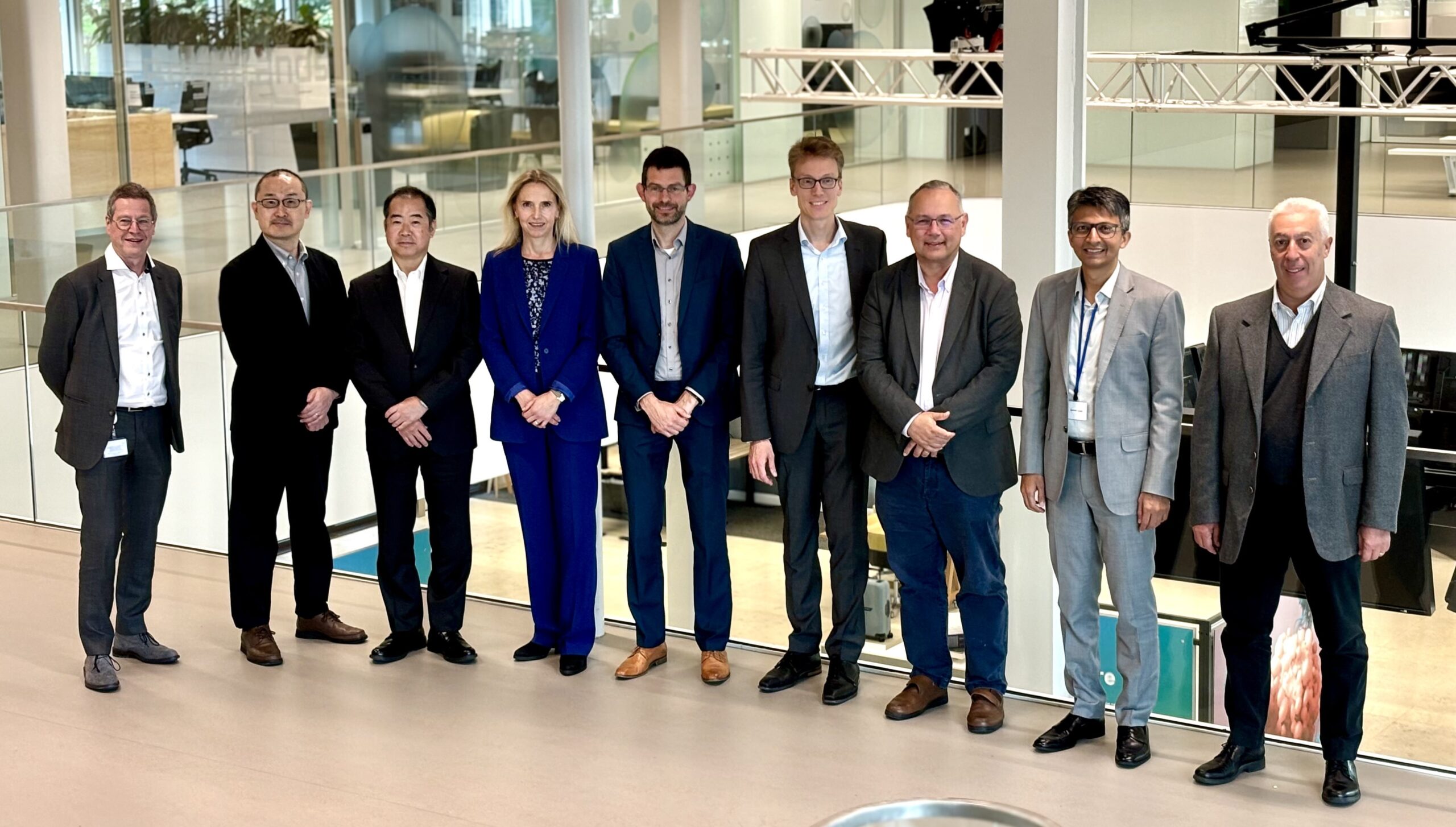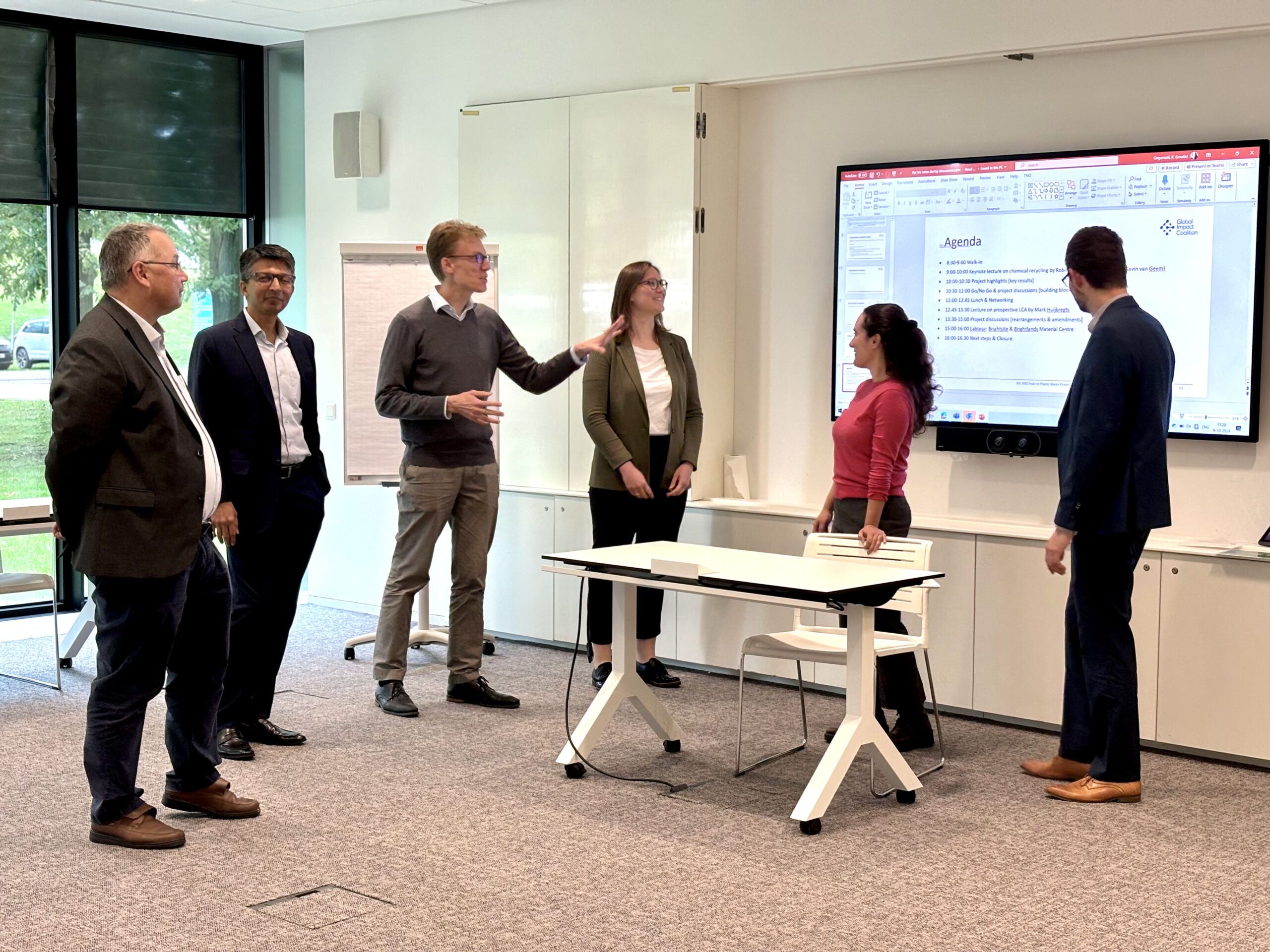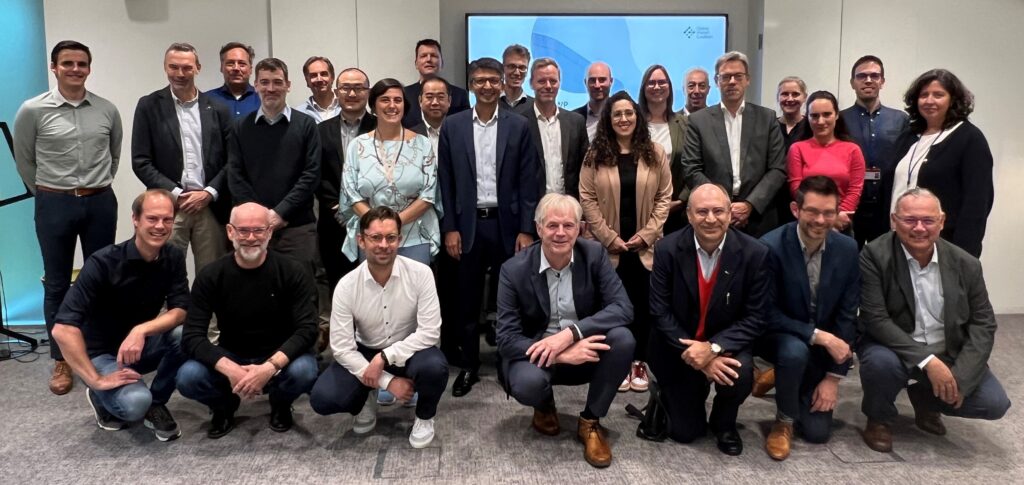The R&D Hub for Plastic Waste Processing was incubated by the Global Impact Coalition under the World Economic Forum. This project spun-out into a standalone initiative managed by leading Dutch innovation agency TNO. The R&D Hub focuses on developing low-carbon waste processing technologies to tackle challenges in plastic recycling.

The R&D Hub for Plastic Waste Processing brings together 7 industry leaders —BASF, Covestro, Dow, LyondellBasell, Mitsubishi Chemical Group, SABIC, and Syensqo—to collaborate on research projects. This collaboration reduces costs and accelerates results, driving impactful innovations.
The pre-competitive nature of the R&D Hub enables competitors to work together on shared solutions by pooling knowledge and resources. This approach accelerates breakthroughs that benefit the entire industry, from improving recycling efficiency to significantly reducing CO2 emissions.
To learn more about the R&D Hub, see the TNO website.
Four key projects within the R&D Hub:
Sensing for sorting:
Developing advanced sensor technologies to improve plastic waste sorting and recyclate quality.
Enhanced solvolysis for composite recycling:
Developing advanced solvolysis techniques to recycle carbon fiber composites more efficiently.
Polymer/inorganics separation at micrometer scale:
Addressing even finer separations, crucial for recycling complex materials like composites.
Polymer/inorganics separation at millimeter scale:
Improving separation processes at the millimeter scale for mixed waste streams.
The R&D Hub focuses on four key projects aimed at overcoming specific hurdles in plastic waste processing and recycling. Each of these projects targets critical bottlenecks in the recycling process, offering the potential for reduced operational costs, increased material recovery, and compliance with stricter environmental regulations.
How does the R&D Hub work?
In annual Ideation workshops TNO together with the 7 Hub members jointly define technology needs and challenges that are subsequently captured in a set of project ideas. The members select the most relevant project ideas which TNO then translates into research projects. These research projects are executed within TNO labs in the Netherlands, with the involvement of European research partners or facilities where needed.
Members actively contribute to shaping the Hub’s research agenda and gain exclusive insights into the resulting technological advancements. This collaborative model ensures that participating companies are equipped with the latest innovations and solutions, positioning them as leaders in sustainable plastics processing. The R&D Hub, open for new members to join twice a year (January and July), fosters broad industry participation, benefiting not just its members but the entire plastics sector.

Impact on the circular economy and plastics recycling
The R&D Hub’s work is expected to have a significant impact on the circular plastics economy. By focusing on the development of sorting and recycling technologies, it will improve the efficiency of plastic waste processing, ultimately leading to more plastics being recycled and reused. The long-term goal is to reduce reliance on virgin materials, lower carbon emissions, and enhance sustainability across the value chain. Exciting innovations brought along by the ongoing Hub projects include new sensor technologies and advanced separation techniques for complex materials. These innovations could revolutionize plastic recycling by improving purity, reducing contamination, and cutting costs.
Listen into the Radio Davos podcast to find out more about the R&D Hub.

Ready to collaborate?
The work of the R&D Hub continues, with new projects and innovations being defined through ideation workshops. As TNO continues to lead these efforts, they are actively seeking new members to join the R&D Hub and benefit from the joint development of ground-breaking plastic waste processing technologies.
Reach out to Koen Janssen to find out how your company can get involved.
